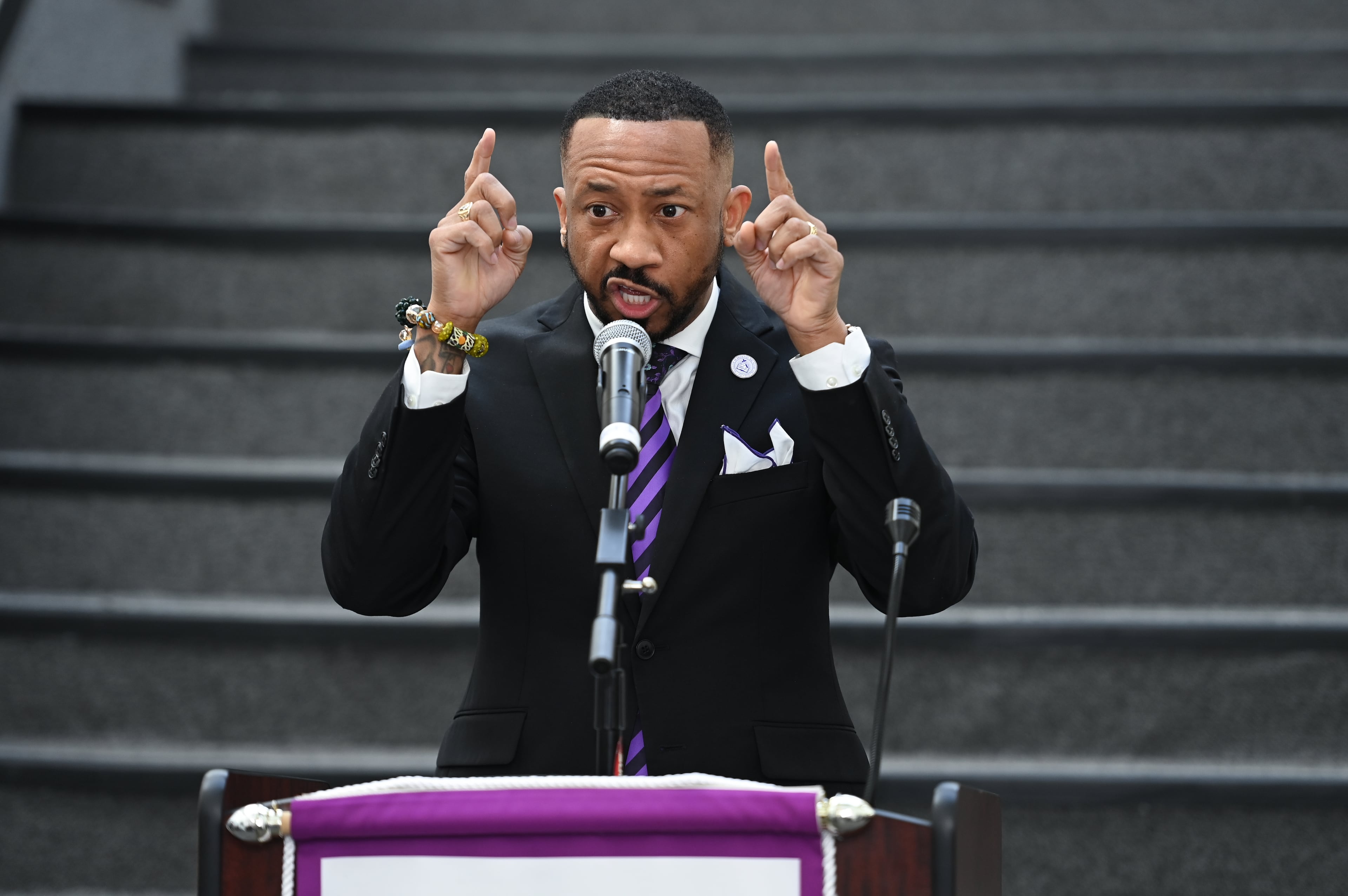Kirk shooting should make colleges rethink event security, experts say

A week after the murder of Charlie Kirk at a Utah college, University System of Georgia Chancellor Sonny Perdue noted the young conservative commentator had recently visited schools in the Peach State.
“I guess I’m frightened by the fact … that Charlie Kirk had been a visitor at our campuses,” Perdue said at a USG Board of Regents meeting Tuesday. “And that type of situation, sadly, could have happened here.”
Kirk’s appearances at the University of Georgia and Georgia State University last fall were without incident. But experts say college campuses can learn from the shooting to prevent similar attacks on guest speakers. It’s a conversation taking place across the country.
“I think it’s a wake-up call for universities,” said John Torres, formerly a special agent for the U.S. Department of Homeland Security.
Some of Georgia’s largest colleges contacted by The Atlanta Journal-Constitution said they either had not canceled or were not aware of cancellations of any upcoming guest speaker appearances.
Eric Dietz, director of Purdue University’s Homeland Security Institute, said cancellations are not the answer. “I think that’s the last thing we should do,” he said, pointing out that most college speaking engagements happen without violence. “I’d rather see us find mitigation techniques, moving them inside, slightly changing venues, pumping the numbers down.”
Because Kirk was shot from a rooftop while speaking outdoors, Torres said he thinks schools should consider moving certain events inside. “It’s much easier to secure an indoor venue because you can use magnetometers, you can do bag searches, you can control who’s getting access to a venue that’s enclosed,” said Torres, now president of security and technology for Guidepost Solutions, a global consulting group.

Outdoor events can still be held safely, he added, although the personnel and technology required to secure them can be expensive. And some small universities have small police departments with fewer resources.
“But there’s nothing saying that you can’t ask for assistance from a local jurisdiction or state jurisdiction to come in and help supplement that,” said Joe Monroe, chief of police at the University of Kentucky.
“One of the things that we would have done differently on that is I would have had drones in the air,” said Monroe, who is also an adjunct faculty member at the University of Southern Mississippi’s National Center for Spectator Sports Safety and Security. “We would have been checking rooftops. We would have been checking parking lots around the venue that weren’t covered by cameras.”
Schools that can’t afford a drone should have security scan the crowd and nearby buildings. “It’s almost like we haven’t learned anything from Butler, Pennsylvania, when (President Donald) Trump got shot. It was a rooftop, very similar,” he said.
Keeping a large event safe requires proper preparation, said Kevin Curran at BEST Crowd Management. In addition to having enough resources available, crowds need to know where to go if there is an emergency.
“After the shots were fired, people scattered and ran,” Curran said of the Kirk shooting, noting injuries can occur “just from the rush of people getting out of the space.”
Torres said university police should monitor for online threats, particularly when hosting controversial political figures. “I get the fact that college campuses don’t usually see that type of violence,” he said. “But you have to know the type of event that you’re hosting, and does it attract a lot of threats, whether online or not.”
In addition to Kirk, Georgia campuses have hosted many high-profile guest speakers in recent years, often outdoors. Then-President Joe Biden was Morehouse College’s commencement speaker last year. During his visit to Georgia State University, Kirk was joined by Vivek Ramaswamy, an entrepreneur who ran for the Republican presidential nomination in 2024. And earlier this year, right-wing provocateur Alex Stein visited the University of West Georgia after an invite from a student organization; some students showed up with signs to protest his appearance.
Colleges sometimes require student groups to pay for security to host a controversial or high-profile speaker. When Trump spoke at Georgia State University last year, the Trump 47 Committee Inc. was charged about $25,000 for police staffing, the AJC previously reported. The Salt Lake Tribune reported eight university police officers staffed the event where Kirk was shot, and Kirk’s team had an additional eight private security staffers on hand.
Most Georgia schools did not provide comment when asked if the Kirk assassination would result in them making changes to their security operations. Georgia Tech said it conducts “security assessments for every event on campus to ensure we have appropriate security protocols in place.”
Perdue said the USG and its schools are professionalizing their security forces and hiring personnel to protect students. “For the most part, we feel like they are as safe as they would be at home,” he told the AJC. “We can’t eliminate all evil.”



